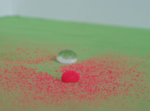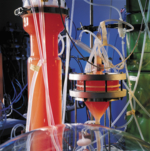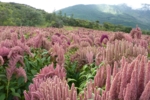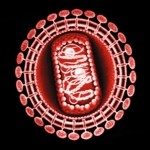-
Dossier - 05/08/2013
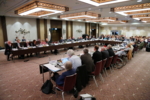
Bioethics is a rich and continually evolving field. In the broadest sense, bioethics relates to the way human individuals treat any form of life. The issue of whether human beings have the right to do whatever they want goes way back. Rapid progress in genetic engineering and cell biology means that it is necessary to look at certain issues in a new way and recognise that not everything that is technically feasible should actually be carried out.
https://www.gesundheitsindustrie-bw.de/en/article/dossier/progress-expands-bioethical-boundaries
-
Dossier - 19/08/2013
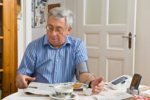
Increasing average longevity, the growing number of chronic diseases and health economy issues are all generating an ever-increasing demand for inexpensive therapy options that are not time - or location dependent. Telemedicine has been offering advanced solutions for a broad range of medical and health issues. Despite this progress, the use of telecommunication and information technologies in the provision of remote healthcare services appears…
https://www.gesundheitsindustrie-bw.de/en/article/dossier/telemedicine-advances-in-high-tech-healthcare
-
-
-
-
-
-
Dossier - 09/09/2013
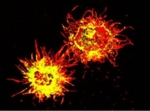
B- and T- lymphocytes along with macrophages have long been regarded as the most important cells of the human immune system and have been a major focus of research. This has now changed and it is now the dendritic cells that are regarded as the major components of the adaptive immune system. Research into innate immune defence mechanisms has become more important due to the discovery of the role of Toll-like receptors as first-line of defence.
https://www.gesundheitsindustrie-bw.de/en/article/dossier/new-trends-in-the-field-of-immunology
-
-
-
-
-
Press release - 05/07/2024
With "OrgaPlexing", scientists at the MPI of Immunobiology and Epigenetics have developed a new method that shows how guardian cells of the immune system, the macrophages, orchestrate their cell structures during inflammation or bacterial infection, making it possible to observe the interactions between several organelles simultaneously and thus providing insights into cell metabolism and the production of inflammatory molecules.
https://www.gesundheitsindustrie-bw.de/en/article/press-release/symphony-organelles
-
-
-
-
-
-
Dossier - 03/06/2013
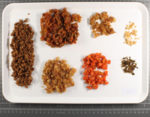
Consumers rightly expect to be supplied with healthy, high-quality and safe foods. However, over the past few years, food scandals have frequently hit the headlines. They are brought to light in laboratories that have a huge arsenal of methods and procedures to analyse food. Although the media would have us believe otherwise, the vast majority of foods are safe and very rarely hazardous to human health.
https://www.gesundheitsindustrie-bw.de/en/article/dossier/food-analytics-applied-consumer-protection
-
Dossier - 13/05/2013
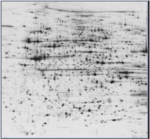
The “Human Proteome Project”, a ten-year global initiative that is making a systematic effort to map all human proteins, has moved from the planning to the experimental stage. How significant and how effective the project will be depends on how much the resources offered are used by proteome researchers and on the data that the researchers bring into the project.
https://www.gesundheitsindustrie-bw.de/en/article/dossier/the-human-proteome-the-next-major-goal
-
-
-
-
Website address: https://www.biooekonomie-bw.de/en/search



